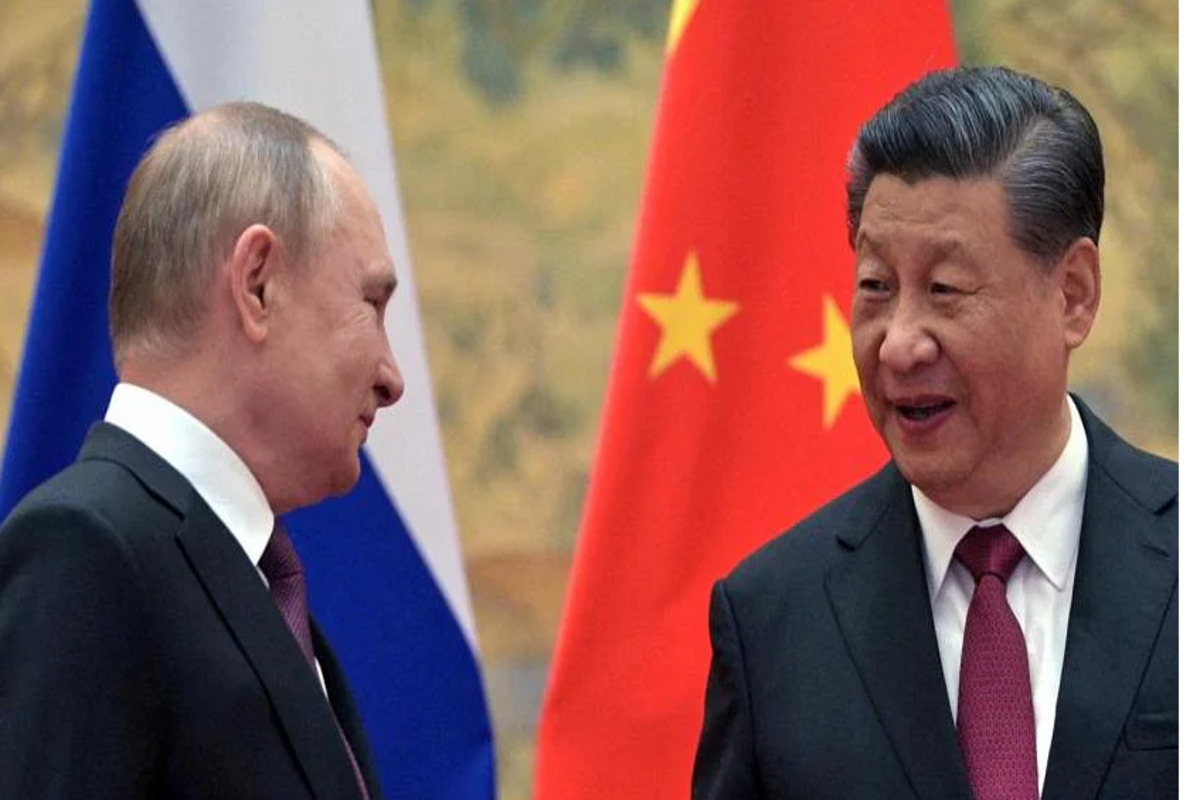India assumes Chair of Asian Disaster Preparedness Centre
India and eight neighbouring countries including Bangladesh, Cambodia, China, Nepal, Pakistan, Philippines, Sri Lanka and Thailand are the founding members of ADPC
The meeting between Russian President Vladimir Putin and his Chinese counterpart Xi Jinping in Beijing is emblematic of a deepening relationship that extends far beyond the realm of traditional diplomacy.

Representation image (PHOTO: REUTERS/ANI)
The meeting between Russian President Vladimir Putin and his Chinese counterpart Xi Jinping in Beijing is emblematic of a deepening relationship that extends far beyond the realm of traditional diplomacy. Amid the lingering tensions following Russia’s 2022 invasion of Ukraine, this engagement underscores a mutual commitment to a partnership that both leaders describe as having “no limits.”
President Xi emphasised a mutual commitment to “rejuvenate” their nations, reinforcing the partnership’s role not just in countering Western influence but also in propelling national advancements. Such rejuvenation speaks to broader ambitions of technological and industrial cooperation, signalling deepened ties that extend into future-oriented sectors. The visit’s timing is strategic, coinciding with the start of Mr Putin’s new Presidential term, and reflects a concerted effort to showcase solidarity against what they perceive as a US-led world order that seeks to side line their national interests. This show of unity is critical as it comes in the wake of intensified scrutiny and diplomatic pressure from the West, particularly concerning Russia’s actions in Ukraine and broader geopolitical ramifications.
The two leaders outlined plans to deepen cooperation across a diverse set of fields including industry, high technology, and renewable energy sources. This suggests an evolving partnership that is pivoting towards significant, future-centric sectors such as artificial intelligence and peaceful nuclear energy, which are pivotal for modern economic growth and development. Yet, despite the strengths and the declared “no limits” to the Sino-Russian relationship, there are inherent complexities. The partnership, though robust in declarations, navigates an intricate landscape of mutual benefit and cautious reservation. Russia, while gaining a pivotal ally in China, risks becoming overly reliant on Chinese economic might. Conversely, China must manage its global diplomatic strategy, balancing its support for Russia with its broader international relations, especially with major economies in the West and the Global South.
Advertisement
The visit also featured a gala celebration marking 75 years of diplomatic ties since the former Soviet Union recognised the People’s Republic of China, underscoring the historical depth and symbolic strength of the bilateral relationship. Such commemorations not only celebrate past milestones but also pave the way for future engagements that could reshape regional and global dynamics. The prominence of this state visit in Chinese media and its significant social media traction demonstrates not only the domestic but also international messaging intent, portraying a united front in a geopolitical context increasingly defined by strategic rivalries. As the world watches how this partnership develops, the impacts are likely to resonate well beyond the borders of Russia and China, influencing global diplomatic, economic, and military strategies. While the Putin-Xi summit may not have resulted in ground-breaking agreements this time, it significantly contributes to the strategic depth of the China-Russia alliance. This partnership, characterised by both opportunity and caution, will undoubtedly continue to shape the contours of global politics in the face of evolving international challenge
Advertisement